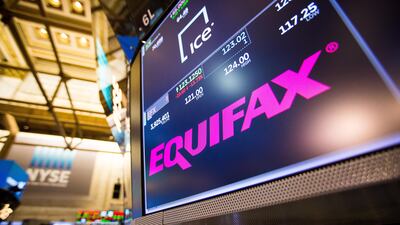Was it the biggest data breach in history? Equifax’s customers won’t care that much. The personal details of some 143 million of the US credit report firm’s customers are believed to have been compromised by a data breach in July, the details of which came to light last week.
Incidents like the Equifax breach are becoming wearyingly common internationally, involving firms such as Sony, Target, The Home Depot and DLA Piper, to name only a few.
The Middle East has by no means been immune to such breaches and cyberattacks. Aside from reports of credit cards being cloned and cyber financial fraud, Saudi companies and government agencies have also been targeted by such attacks. Such breaches highlight the need for vigilance and proper protection by firms and governments in the region and across the world.
Such attacks highlight the need for vigilance and proper protection by firms and governments in the region and across the world.
_______________
Read more:
UAE central bank nearing conclusion of virtual currency review
Credit Karma reassures users it 'has your back' after Equifax data breach
_______________
The rise of bitcoin and other digital currencies is another area where governments in the region and elsewhere need to also be cautious. The rise of cryptocurrencies, and the Blockchain technology that underpins them, open up significant opportunities for a growing fintech entrepreneurial class in the Arabian Gulf. A number of landlords in Dubai's City Walk in Jumeirah, for example, are reportedly set to start accepting Bitcoin payments from next month.
But such currencies are also sadly wide open to abuse. China is set to ban the trading of bitcoin on domestic exchanges, aware that a significant proportion of virtual currencies are used to fund criminal ventures and are the ransom payment method of choice for cyberattackers around the world.
UAE authorities are aware of such challenges and are taking action to minimise risks to government agencies, businesses and customers. Dubai, which has embraced Blockchain as part of its Smart Dubai connected city initiative, launched the Dubai Cyber Security Strategy earlier this year, to ensure that its connected vision is not endangered by criminal elements.
Reports that theCentral Bank of the UAE is revising its rules on virtual currencies are particularly welcome, as bitcoin gains increasing traction in the country.
Momentum towards an ever more connected and digitised world is unstoppable, particularly in financial transactions. Such a trend is to be embraced, as long as governments and corporations are proactive in preventing abuse.

